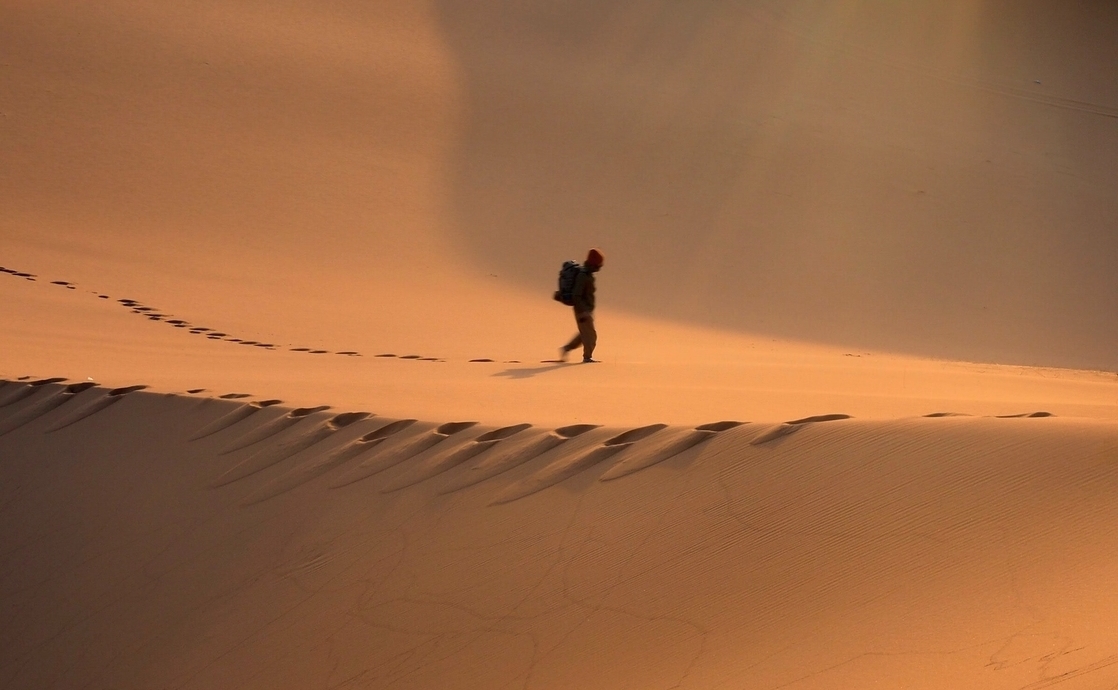The views expressed in our content reflect individual perspectives and do not represent the authoritative views of the Baha'i Faith.
In a prayer from Baha’u’llah, the prophet and founder of the Baha’i Faith, the suppliant addresses the Creator in the following manner: “By Thy Glory! O Beloved of all hearts, Thou that alone canst still the pangs of yearning for Thee!”
The love relationship we inherently yearn to attain with our Creator, as Baha’u’llah goes on to explain, knows no bounds:
How then can I sing and tell of Thine Essence, which the wisdom of the wise and the learning of the learned have failed to comprehend, inasmuch as no man can sing that which he understandeth not, nor recount that unto which he cannot attain, whilst Thou hast been from everlasting the Inaccessible, the Unsearchable. Powerless though I be to rise to the heavens of Thy glory and soar in the realms of Thy knowledge, I can but recount Thy tokens that tell of Thy glorious handiwork.
Of course, everything in creation expresses the attributes of the Creator, just as all works of art reflect the artist. Because of this essential nature of creation to manifest some aspect of the divine, we might correctly consider physical reality as a classroom fashioned by the Creator precisely to teach us about our essential nature as spiritual beings.
RELATED: Knowing God Through His Creation
If you love nature, you know this feeling. If you love the world itself, you know this feeling. If you love humanity, you know this feeling.
If we study this affection we feel for the Creator and the creation intelligently, we will become aware that the foundation of all desire is our yearning to attain the knowledge of God, if we will but open the doors of perception.
When we strive to attain this understanding, the knowledge we acquire is then capable of leading us to an eternally progressive love relationship with the Creator.
Therefore, while the Baha’i writings give ample testimony to the fact that the Creator is essentially unknowable, we now realize that the word essentially is intended to be taken quite literally – we cannot know God’s essence. However, what is also apparent is that we can know all manner of things about the Creator. If everything in creation, including our own being, testifies to the nature of God, whether to a greater or lesser degree, then we can hardly escape knowing about God, even if His essence will ever remain veiled from complete or exact knowledge on our part.
The Logical Necessity for an Educator
Even with all creation exhorting us to know and love the Creator so that we might benefit and progress from that knowledge, we still need important assistance. The fact is that we are not going to make any headway in our life’s purpose without external assistance, without guidance, without a teacher. For unlike animal life, we as human beings are fashioned without a great deal of instinctive behavior. Unlike most animals, we do not have the ability to function in adult-like ways a few hours or a few months, or even a few years, after we’re born. We need to be taught almost everything we learn, and the process of that learning takes time.
In short, we cannot spontaneously intuit the purpose of all these wonderful things around us, let alone the deeper metaphysical meaning of our relationships, without unremitting assistance from teachers who possess the knowledge and experience to educate us and nudge us in the right direction.
By analogy, if we were to take an extremely bright child who had never been taught anything, and then placed this child in the best classroom our minds could devise – full of educational toys, computers, and teaching tools of every sort – we could hardly expect the child to learn anything at all if the child were simply abandoned there without help.
RELATED: Who Speaks For The Creator?
Even after we have learned initial survival skills from our parents – walking, talking, nutrition, hygiene, and so on – we would not be able to progress further without continued assistance from teachers who provide us with constant and progressive increments of foundational skills and basic tools for living. As the Baha’i teachings consistently point out, humanity requires educators who can teach us not only how to live, but how to live with one another in peace and harmony – in short, divine educators, the prophets and messengers who establish our great Faiths. In the book “Some Answered Questions,” Abdu’l-Baha outlined the requirements for such universal educators:
Were it not for an educator, the means of comfort, civilization, and human virtues could in no wise have been acquired. If a man is left alone in a wilderness where he sees none of his own kind, he will undoubtedly become a mere animal. It is therefore clear that an educator is needed. …
… the universal Educator must be at once a material, a human, and a spiritual educator, and, soaring above the world of nature, must be possessed of another power, so that He may assume the station of a divine teacher.
From a spiritual perspective, how do these universal educators teach us? In the next essay in this series, we’ll explore that crucial question.
















Comments
Sign in or create an account
Continue with Googleor